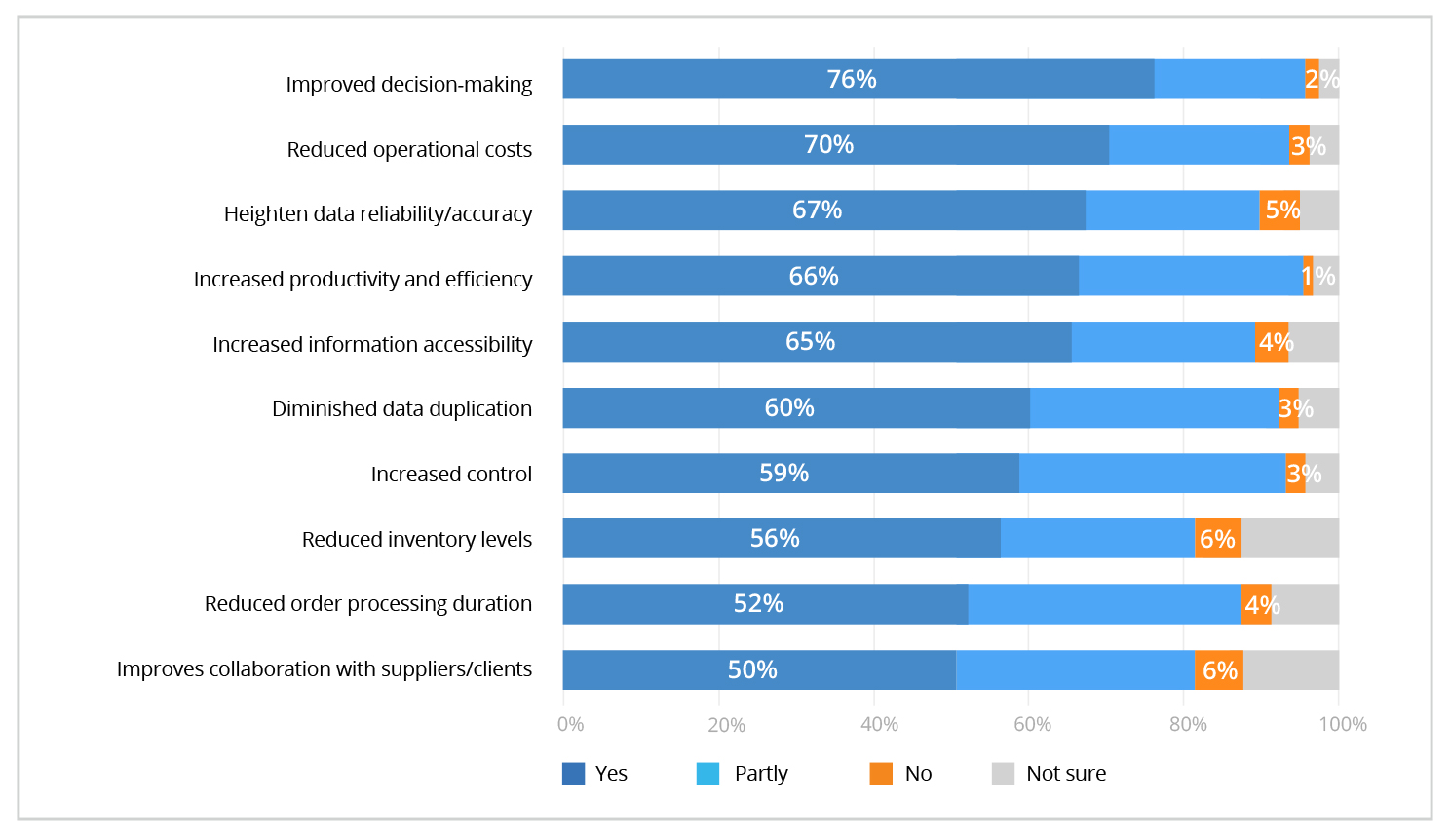Implementing a business management system in a company is a major challenge, requiring a lot of effort, time and budget. Find out why Lithuanian companies call their ERP projects successful.
Implementing a business management system in a company might appear as a considerable challenge, necessitating substantial effort. It can prove demanding to oversee in terms of both time and budget and might not consistently meet the set expectations. Nonetheless, Lithuanian companies that have integrated and are utilizing financial accounting and business management systems hold a distinct viewpoint. In 2016, we conducted a quantitative study regarding the implementation and usage of financial accounting and business management systems in Lithuania. The results revealed that companies generally regard their ERP implementation endeavors as rather successful:
- Duration of the EMS implementation is up to 1 year;
- The duration and budget for the deployment of the ABM shall not exceed;
- The company's performance usually stabilizes within six months after implementation..

Budget
58% of respondents felt that the ERP project remained within the planned budget. Only 1% of respondents believe that it exceeded the budget by more than 50%.
Duration
According to the survey results, most companies implemented an ERP within one year (86%): 36% within 3-6 months, 30% within 7-12 months and 20% within less than 3 months. A total of 8% of companies had been engaged in ERP implementation for over 2 years. Of the respondents, 67% deemed the ERP implementation project to have adhered to the scheduled time frame. Meanwhile, 27% of respondents believed that it extended beyond the initially planned duration. Furthermore, 3% of participants successfully executed the ERP implementation faster than initially planned.
Stability
A notable 32% of respondents expressed that they did not perceive a necessity for a stabilization period for their company's operations following the implementation of the ERP. However, a majority, comprising 62% of respondents, believed such a period was needed. The stabilization of the company's operations was quick (up to 1 month) for 10% of enterprises, between 1 month and half a year for 33% of enterprises, and more than half a year for 17% of enterprises.
This data was indeed surprising, as the common trend indicates that achieving operational stability after the introduction of ERP functionality can often extend to around half a year, even if it is not very complex. Stabilization takes time because of changes in processes, the need to build user skills, the emergence of related errors or errors that were overlooked during the upload process, and system errors, all of which are difficult to catch before or during the trial run.
The largest number of respondents believe that the introduction of an ERP has improved decision-making (76%), reduced operational costs (70%) and increased data reliability/accuracy (67%).
Benefits
Every respondent indicated that the company anticipated reaping advantages from the implementation of the ERP. The primary anticipations included: increasing control (74%), increasing productivity and efficiency (67%), reducing data duplication (58%), increasing data reliability/accuracy (58%). There are no major differences in the benefits achieved depending on the system used. The expectations of all users of the ERP are similar, regardless of the product. A substantial 63% of respondents believe that the benefits have indeed been realized, underscoring the successful outcomes from the implementation of the ERP. Conversely, a mere 3% of participants hold the viewpoint that no benefits have been derived from the ERP introduction. The largest number of respondents believe that the introduction of an ERP has improved decision-making (76%), reduced operational costs (70%) and increased data reliability/accuracy (67%). The main expectations that companies had were achieved to the following extent: increased control (74% expected to achieve, 59% achieved), increased productivity and efficiency (67% expected to achieve, 66% achieved), reduced duplication of data (58% expected to achieve, 60% achieved), and data reliability/accuracy (58% expected to achieve, 67% achieved). The greatest proportion of respondents expressed that the implementation of the business management system did not result in a reduction of inventory levels (6%) and did not notably enhance collaboration with suppliers and customers (6%).

